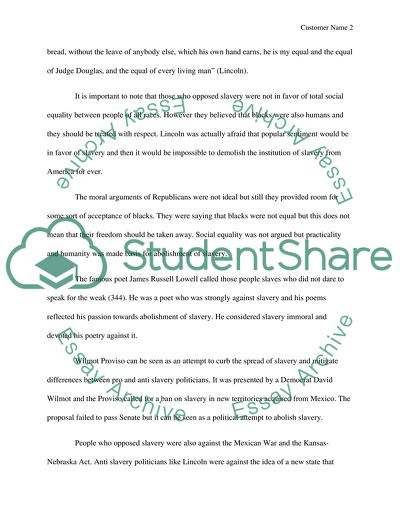Assess the moral arguments and political actions of those who opposed Essay. Retrieved from https://studentshare.org/history/1586961-assess-the-moral-arguments-and-political-actions-of-those-who-opposed-to-the-spread-of-slavery-in-the-context-of-the-mexican-war-and-the-kansas-nebraska-act
Assess the Moral Arguments and Political Actions of Those Who Opposed Essay. https://studentshare.org/history/1586961-assess-the-moral-arguments-and-political-actions-of-those-who-opposed-to-the-spread-of-slavery-in-the-context-of-the-mexican-war-and-the-kansas-nebraska-act.


